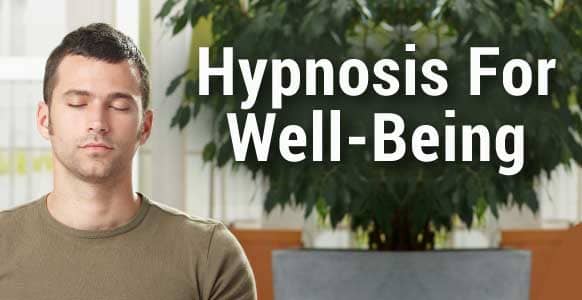
Since the beginning of 2020, everything has changed.
The COVID-19 pandemic has impacted us all, physically and mentally.
Many are struggling with restricted movements, working from home, and the lack of interaction with family, friends, and colleagues.
Part of the problem is the fear of the unknown, such as not knowing how long it will last or even what’s just around the corner.
According to the World Health Organization (WHO), 70% of countries are using telemedicine and teletherapy to try and deal with growing mental health concerns.
Hypnotists and hypnotherapists recognize the link between hypnosis and well-being, especially its ability to reduce stress, lower anxiety levels, and allay fears.
And with all this uncertainty, it’s not surprising that people are turning more and more to things like hypnotherapy for comfort and reassurance.
The Rise of Hypnotherapy As An Emerging Trend In Mental Health And Wellness – What The Experts Are Saying
Why is hypnotherapy becoming so popular?
It’s not just because of the pandemic, although that’s certainly a contributing factor.
After all, people are having to cope with situations that would have been unimaginable less than a year ago.
Like lockdowns, social distancing, potential job losses, disruption to routines, isolation.
And as this article on the Psychological effect of COVID 19 points out, being stuck indoors for days or weeks on end can lead to loneliness, anxiety, depression, confusion, and fear.
On top of that, the Wellness Institute lists 3 reasons for the rising demand for hypnotherapy:
- 1. One in 5 American adults has to deal with a mental health challenge in any given year.
- They attribute this to the unstable political, social and economic climate where jobs are scarce and more demanding and where work and home life are increasingly stressful.
- 2. Clients want results in a hurry.
- The idea of going to a therapist week after week for years is no longer acceptable. Fortunately, with hypnotherapy, a couple of sessions can often be enough to encourage major changes for the better.
- 3. Hypnotherapy can help treat a wide range of physical and mental conditions using pain-free, non-invasive techniques, and is a particularly powerful tool to fight stress, anxiety, fear and other issues that can affect people’s mental health.
In fact, hypnosis and well-being go hand in hand. Every hypnotic induction begins with some form of relaxation, which immediately helps to calm you down and reduce your stress levels.
And in normal times, that’s exactly what you’d do with your client at the beginning of a hypnosis session. But these are not normal times.
Depending on where you live, it’s likely that you’ll no longer be able to see your clients in a face to face setting. But don’t let that discourage you.
It’s perfectly possible to provide the same service you’ve always delivered, but just in a slightly different way.
The truth is that taking your hypnosis services online gives you the chance to reach even more people. But how do you go about it?
Here are some tips for providing online therapy, sometimes known as telemedicine:
Go First
This is even more important online, because it’s harder for people to read your body language. So go first, switch on your H+, and create the kind of vibe that will put your client at ease and in the right frame of mind.
Ramp Up Your Hypnotic Language
Since you can’t physically be there, your words matter even more than usual. They need to pack a punch and be as powerful as possible. That includes using your power words, backtracking and echo effect to get in sync with your client, and matching your client’s way of describing things (auditory, visual or kinesthetic).
Use Hypnotic Stories

Stories can help your client relax and will stimulate their imagination, which will help to bypass their critical factor. This is important because they might be working with you through a screen that’s only the size of a smartphone.
So whether it’s an anecdote, a “my friend John” story, or a parable, it will settle them down and enable them to let go and participate more fully.
Practice Working Online
Record yourself doing a mock session (using something like a free Zoom account, for instance). This will help you feel comfortable in front of the camera. It also gives you the opportunity to focus on your tone of voice, volume, facial expressions, and general demeanor.
The more you practice, the easier it will be to do a “live” session when the time comes.
Get Client Feedback
Ask your client for feedback at the end of the session. Were there any aspects that made them feel uncomfortable or anxious? Use this feedback to address any doubts or related issues in your pre-talk next time.
What other things will you need to deliver your online therapy?
In terms of your working environment, you’ll need somewhere clean and tidy that’s also distraction-free. You want your clients to see you in a professional setting, and not in a room with dirty laundry or peeling wallpaper.
If you’ve got a small home office already, that would be ideal. The main thing is to present yourself in the same manner as you would in person so your client’s expectations are the same as they would normally be.
You also need to make sure you won’t be disturbed during the session, either by any sudden noises or by children or pets running into the room.
A good idea is to use headphones which will reduce any background noise. You can also advise your client to use headphones as they will make the trance experience more powerful.
That gives you a good idea of what to do and how to do it. But what specific hypnosis techniques can you use to help your clients navigate their way through the COVID-19 minefield?
>> For more information about conducting telemedicine sessions, check out 11 Professional Online Therapy Tips For Hypnotists, Therapists & Nervous Clients New To The World Of “Telemedicine”
Hypnosis And Well-Being: 5 Ways To Support Mental Health And Well-Being

There’s no doubt about it. People are feeling more stressed now than ever before.
And fear is growing. Fear of the virus, which has been labeled “coronaphobia”.
Then there’s also the fear of the unknown, which brings uncertainty with it.
Too much uncertainty can lead to panic and even mass hysteria.
So it’s lucky that as a hypnotist you’ve got a whole bunch of tools and techniques at your disposal to help people cope.
Here are 5 techniques you can use that will be just as effective for online therapy as they would in a conventional office space.
1. Simple Relaxation
Most inductions start with this. Even just getting your client to close their eyes, relax, and focus on their breathing can help get rid of stress and anxiety. Remember that it’s impossible to feel relaxed and stressed at the same time.
2. Blitz
This is a bit like a pep talk, in the sense that you elicit information from your client and then feed it back to them in a positive way.
“You are coping well with working from home, aren’t you?”
“Keeping in touch with family members makes you feel connected, doesn’t it?”
3. Visualization
Use stories, metaphors and symbols to tap into the client’s imagination. You might lead them through an enchanted forest or down a magic staircase to several doors that need to be opened. Which door will they choose?
What symbol(s) will they find behind it? Whatever they visualize will help them get a better understanding of how they feel, and what they can do to change it.
4. Revivification
Use this tool to mine for resources. Bring your client back to a time when they felt able to cope, were less stressed, and had less fear. What were they doing then that they’re not doing now? What resources can they find inside themselves to carry forward?
5. Self-hypnosis
Teach them self-hypnosis so they can relax and de-stress whenever it feels like things are getting on top of them. They can also use the technique to find solutions to problems, reinforce positive thinking, achieve goals, get rid of bad habits, and so on.
Of course, you’ll only be spending a certain amount of time with your clients. Is there any advice you can give them that they can carry through to their daily lives, perhaps until their next session with you?
>> Related article: What Is Self Hypnosis Used For? Discover How It Regulates These 6 Essential Chemicals So You Can Live A Happier & Healthier Life
Coping With Stress And Phobias During A Pandemic

As you probably know, COVID-19 is not going away anytime soon.
The world is faced with a “new normal” full of challenges, where people are forced to work remotely, follow quarantine measures, obey lockdown instructions, and stick to social distancing guidelines.
It’s no wonder they feel worried, anxious, and stressed. But the situation has also created new phobias.
In the new normal world, the thought of being unable to buy groceries whenever you want to would have been unheard of just a few months ago.
People are afraid that they won’t have access to medicine and health facilities because they believe that these are being diverted to treat coronavirus sufferers.
Differently abled and vulnerable people find themselves feeling further isolated as it becomes more and more difficult for their network of helpers to do their jobs adequately.
This time last year, the idea of stocking up supplies of toilet paper would have seemed an absurd and unnecessary notion.
These kinds of worries and fears are normal when you’re in the middle of a crisis such as this, but those fears and worries can be managed.
Business Insider’s article 12 Ways To Cope With Coronavirus Anxiety highlights expert tips from psychologists about how to cope.
Some of their tips include the following:
Fight the uncertainty
Tell yourself something that is certain, no matter how small a detail it is
Limit media exposure
Avoid the “bad news” as much as possible
Be grateful
Focus on what you’ve got to be grateful for in your life, rather than on what you’re missing
Connect with others
Stay in touch with friends and relatives, which will cheer you and them up
Establish a routine
Don’t sit around doing nothing because that will give you too much time to dwell on the negative
Protect yourself and others
Follow the hygiene and social distancing rules to keep yourself, your family and your colleagues safe
Get the help you need
Make use of online support for mental health issues
Practice self-hypnosis

At the very least, simple breathing exercises can help you stay calm and lower your anxiety levels
The Anxiety and Depression Association of America (ADAA) offers similar types of anxiety-reducing strategies.
They also suggest getting involved in daily stress reduction activities such as meditation, yoga, and exercise. And writing in a gratitude journal will keep you from getting bogged down with negative thoughts.
They also stress that, even though times are tough, we’re all in it together. Help is available for anyone that needs it, and all they have to do is reach out.
To wrap it up…
In some ways, the need for the power of hypnosis has never been greater.
There has always been a strong connection between hypnosis and well-being, especially its application in hypnotherapy.
And with the current restrictions being placed on people the world over, online therapy is making more and more sense to more and more people.
The important point to remember is that hypnosis relies for the most part on words and their ability to communicate with the unconscious mind.
With a bit of practice and a dash of confidence, it’s just as easy to do that online as compared to more traditional settings.
Moving your hypnosis business online now means that you’ve future-proofed it; you’ll be prepared for whatever happens, even if another pandemic comes along and drives the world indoors yet again.
No matter what, you’ll still have the power to use your skills as a force for good, helping your clients deal with mental health issues in the new normal, however long it lasts.










![[ADVANCED GUIDE] How To Master Hypnotic Regression Therapy - Part I: Essential Principles To Profoundly Transform Your Subject’s Emotional Trauma [ADVANCED GUIDE] How To Master Hypnotic Regression Therapy - Part I: Essential Principles To Profoundly Transform Your Subject’s Emotional Trauma](https://hypnosistrainingacademy.com/wp-content/uploads/2016/09/hypnotic-regression-therapy-essential-principles.jpg)

![Yogic Breathing For Hypnosis: 3 Easy Techniques To Ground & Relax Your Clients Before Inducing A Hypnotic Trance [Includes Infographic] Yogic Breathing For Hypnosis: 3 Easy Techniques To Ground & Relax Your Clients Before Inducing A Hypnotic Trance [Includes Infographic]](https://hypnosistrainingacademy.com/wp-content/uploads/2019/05/yogic-breathing-for-hypnosis.jpg)

